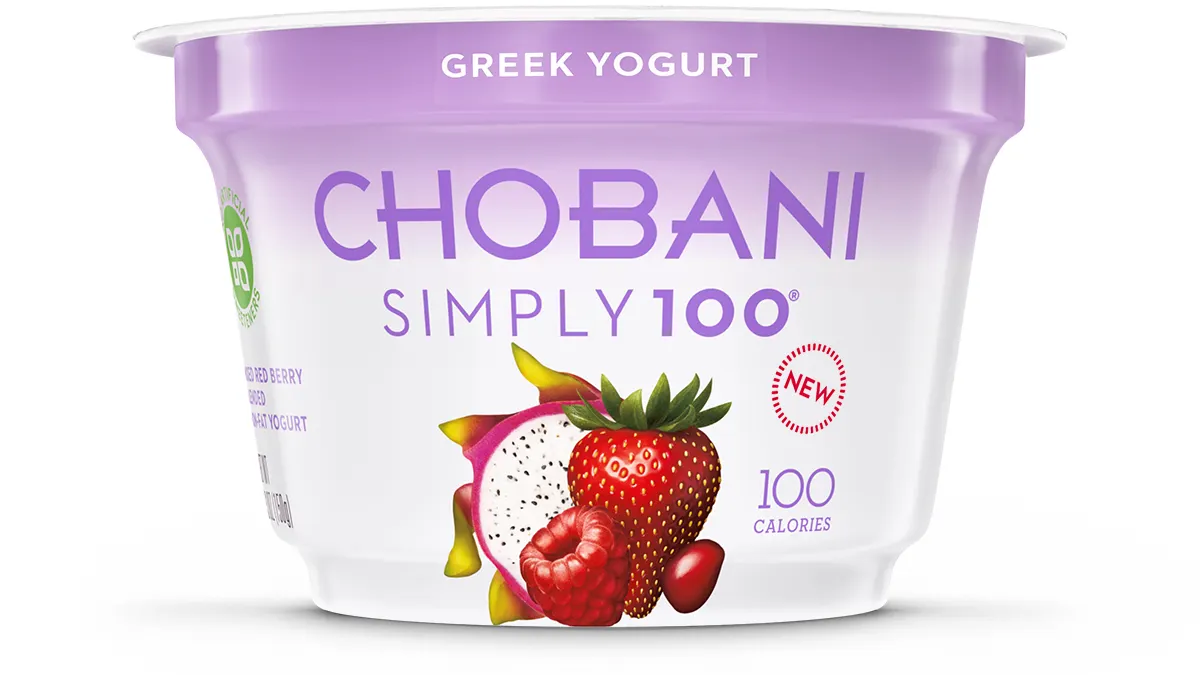Dive Brief:
- Chobani took aim at other Greek yogurt brands in a Simply 100 ad campaign that bashed other brands' use of artificial ingredients — an ad campaign that quickly ended up in the courts after its Jan. 6 launch.
- The day after the campaign debuted, Dannon sent a cease and desist letter to demand that Chobani discontinue the campaign.
- On Friday, Chobani sought out a court decision that would permit the campaign to continue, standing by the ads' claims as "true and accurate."
Dive Insight:
Dannon's lawyer Marcella Ballard said in a statement to Chobani's general counsel that the campaign's claims "are false, misleading and deceptive, will deceive consumers, and have caused and will continue to cause immediate and irreparable injury to Dannon, as well as to consumers."
In response, Chobani said that the information revealed by the campaign about their competitors using artificial ingredients was pulled from websites run by the U.S. government. Use of artificial ingredients is unappealing to health-conscious consumers who are looking to avoid these types of ingredients — a recurring industry trend.
Chobani banked on this sentiment with this bold ad campaign, which is meant to demonstrate the difference between Chobani Simply 100 and its competitors — that Chobani's product has a clean label with only natural ingredients.
Tapping into peoples' emotions and values for marketing purposes isn't new, but the main reason for brands to use values-based marketing is that it sells. "A lot of our consumption is based on our values … and by speaking to values [in your messaging], you can target in a broader and more efficient way," Ravi Iyer, data scientist at values-based marketing agency Zenzi, told Marketing Dive last fall.
With the law coming into question regarding this campaign, though, it's unclear which yogurt arguments will stick and which products consumers will ultimately favor.










